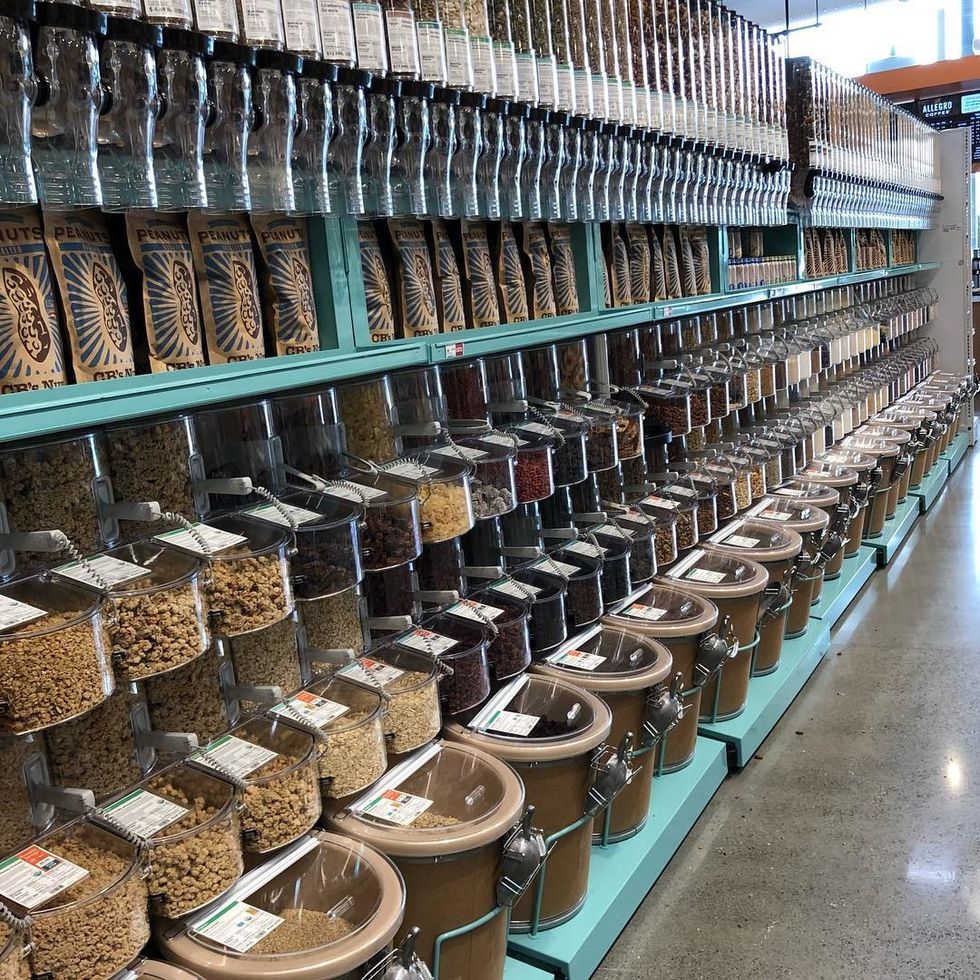It wasn't until I got to college that I learned the phrase "Zero Waste." The term is pretty self-explanatory, but it speaks more largely to a lifestyle than just a habit. Someone who is Zero Waste consciously makes sustainable purchases when it comes to food, household products, clothing, and every aspect of daily life you can think of.
By reducing the number of waste materials sent to landfills and incinerators, they conserve resources and reduce their environmental footprint. Although someone who rigidly sticks to Zero Waste practices can greatly reduce waste, the most important thing to remember is that every bit counts and that no one can eradicate all waste from their lives.
Some of the easiest swaps to begin with? Reusable grocery bags, coffee mugs, and water bottles.
Bringing your own grocery bag with you to the store is a good habit to get into now, especially as more and more grocery stores begin charging for plastic bags. In the same vein, many coffee shops (on and off campuses) will give you a discount for bringing your own mug for them to refill. It's an incredibly simple action to take and can have a significant impact on the reduction of paper coffee cups that get dumped into landfills every day. A reusable water bottle is easy to refill as well, and carrying it around with you is the perfect way to stay hydrated without spending money on plastic water bottles.
Beyond these easy steps, there are hundreds of alternatives to plastic-packaged products and non-recyclables. Make the switch to metal straws and bamboo cutlery to guarantee you're always prepared to dig into a yummy smoothie or snack while reducing the number of plastic straws and plastic cutlery that end up in the landfills or our oceans. When the bristles of your toothbrush start going every which direction, buy some bamboo toothbrushes as replacements.
In the grocery store, the easiest way to be Zero Waste is to buy fresh fruits and veggies and to shop the bulk section using your own containers. Although it can get a little pricey in some cases, the act of buying in bulk can greatly reduce the plastic that most trail mixes, snacks, and even flours come packaged in. I recently discovered that a local grocery store even has a bulk bin full of Cheetos - now, I don't have any excuse to avoid their orangey goodness!
When it comes to household and bathroom products, there are so many natural options that require few ingredients and get the job done just as well — if not better — than harsh, unhealthy chemicals. Follow tags such as #zerowaste on Instagram for recipe ideas and inspiration!
Another aspect of a Zero Waste lifestyle is the acquisition of clothing and textile products. The fashion industry is one of the biggest producers of waste, including mass overproduction of textiles and pollution of waterways and landscapes with dyes and chemicals. "The True Cost," a Netflix documentary, illustrates the unimaginable and widely unknown flaws in the textile production systems of today. Someone practicing Zero Waste ideals will not buy new, unethically, or unsustainably produced clothing. Websites such as Poshmark are great ways to find fashionable clothes without (literally) buying into the trends of fast fashion. Other fun, sustainable ways to fill your closet include shopping at thrift and consignment stores or swapping clothes with friends or community members. Or, if you're buying new, invest in sustainable staple items from brands like remake, Hara, and notPERFECTLINEN to last you longer than cheaply made products.
Although the process of becoming Zero Waste takes time, effort, and dedication, there are easy ways to begin the journey in reducing waste in our world. Each small action you take can make a difference. After all, as more people make conscious decisions as consumers, big businesses will begin to recognize our values and change their production methods to reflect them. So, next time you visit the grocery store or stop into Starbucks for your caffeine boost, remember those reusables and know that you are making an impact!



















